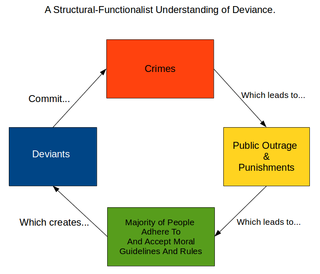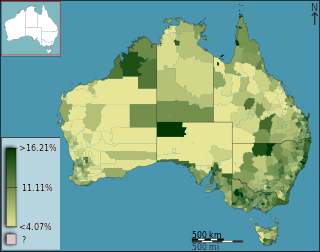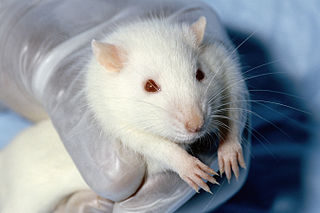Alternative medicine is any practice that aims to achieve the healing effects of medicine despite lacking biological plausibility, testability, repeatability or evidence of effectiveness. Unlike modern medicine, which employs the scientific method to test plausible therapies by way of responsible and ethical clinical trials, producing repeatable evidence of either effect or of no effect, alternative therapies reside outside of medical science and do not originate from using the scientific method, but instead rely on testimonials, anecdotes, religion, tradition, superstition, belief in supernatural "energies", pseudoscience, errors in reasoning, propaganda, fraud, or other unscientific sources. Frequently used terms for relevant practices are New Age medicine, pseudo-medicine, unorthodox medicine, holistic medicine, fringe medicine, and unconventional medicine, with little distinction from quackery.

The American Psychological Association (APA) is the largest scientific and professional organization of psychologists in the United States, with over 146,000 members, including scientists, educators, clinicians, consultants, and students. It has 54 divisions—interest groups for different subspecialties of psychology or topical areas. The APA has an annual budget of around $125 million.

Naturopathy, or naturopathic medicine, is a form of alternative medicine. A wide array of pseudoscientific practices branded as "natural", "non-invasive", or promoting "self-healing" are employed by its practitioners, who are known as naturopaths. Difficult to generalize, these treatments range from the thoroughly discredited, like homeopathy, to the widely-accepted, like certain forms of psychotherapy. The ideology and methods of naturopathy are based on vitalism and folk medicine rather than evidence-based medicine, although practitioners may use techniques supported by evidence. The ethics of naturopathy have been called into question by medical professionals and its practice has been characterized as quackery.

A psychologist is a professional who practices psychology and studies mental states, perceptual, cognitive, emotional, and social processes and behavior. Their work often involves the experimentation, observation, and interpretation of how individuals relate to each other and to their environments.

Animal welfare is the well-being of non-human animals. Formal standards of animal welfare vary between contexts, but are debated mostly by animal welfare groups, legislators, and academics. Animal welfare science uses measures such as longevity, disease, immunosuppression, behavior, physiology, and reproduction, although there is debate about which of these best indicate animal welfare.

Health informatics is the study and implementation of computer structures and algorithms to improve communication, understanding, and management of medical information. It can be view as branch of engineering and applied science.

The Animal and Plant Health Inspection Service (APHIS) is an agency of the United States Department of Agriculture (USDA) based in Riverdale, Maryland responsible for protecting animal health, animal welfare, and plant health. APHIS is the lead agency for collaboration with other agencies to protect U.S. agriculture from invasive pests and diseases. APHIS's PPQ is the National Plant Protection Organization for the U.S., and the agency's head of veterinary services/veterinary Deputy Administrator is the Chief Veterinary Officer of the United States.

The Children's Hospital at Westmead is a children's hospital in Western Sydney. The hospital was founded in 1880 as "The Sydney Hospital for Sick Children". Its name was changed to the "Royal Alexandra Hospital for Children" on 4 January 1904 when King Edward VII granted use of the appellation 'Royal' and his consort, Queen Alexandra, consented to the use of her name.
The regulation of science refers to use of law, or other ruling, by academic or governmental bodies to allow or restrict science from performing certain practices, or researching certain scientific areas.
The National Health and Medical Research Council (NHMRC) is the main statutory authority of the Australian Government responsible for medical research. It was the eighth largest research funding body in the world in 2016, and NHMRC-funded research is globally recognised for its high quality. Around 45% of all Australian medical research from 2008–12 was funded by the federal government, through the NHMRC.
Australian Biological Resources Study (ABRS) is a project undertaken by the Parks Australia Division of Australia's Department of Climate Change, Energy, the Environment and Water.
A Patient Safety Organization (PSO) is a group, institution, or association that improves medical care by reducing medical errors. Common functions of patient safety organizations are data collection, analysis, reporting, education, funding, and advocacy. A PSO differs from a Federally designed Patient Safety Organization (PSO), which provides health care providers in the U.S. privilege and confidentiality protections for efforts to improve patient safety and the quality of patient care delivery

Forensic social work is the application of social work to questions and issues relating to the law and legal systems. It is a type of social work that involves the application of social work principles and practices in legal, criminal, and civil contexts. It is a specialized branch of social work that focuses on the intersection of law and mental health. Forensic social work is an important part of the criminal justice system and provides an important link between mental health and the legal system.

Health care in Australia operates under a shared public-private model underpinned by the Medicare system, the national single-payer funding model. State and territory governments operate public health facilities where eligible patients receive care free of charge. Primary health services, such as GP clinics, are privately owned in most situations, but attract Medicare rebates. Australian citizens, permanent residents, and some visitors and visa holders are eligible for health services under the Medicare system. Individuals are encouraged through tax surcharges to purchase health insurance to cover services offered in the private sector, and further fund health care.

Animal testing regulations are guidelines that permit and control the use of non-human animals for scientific experimentation. They vary greatly around the world, but most governments aim to control the number of times individual animals may be used; the overall numbers used; and the degree of pain that may be inflicted without anesthetic.

Homeopathy is fairly common in some countries while being uncommon in others. In some countries, there are no specific legal regulations concerning the use of homeopathy, while in others, licenses or degrees in conventional medicine from accredited universities are required.

In New Zealand, animals are used in many situations for research, testing and teaching (RTT).
Michael Richard Kidd is an Australian medical practitioner, academic and author. He is Professor of Global Primary Care and Future Health Systems at the University of Oxford and Director of the Centre for Future Health Systems at the University of New South Wales. He is a past president of the Royal Australian College of General Practitioners (RACGP) a past president of the World Organization of Family Doctors (WONCA) and former Deputy Chief Medical Officer with the Australian Government Department of Health and Aged Care.

This article is about the treatment of and laws concerning non-human animals in Australia. Australia has moderate animal protections by international standards.












